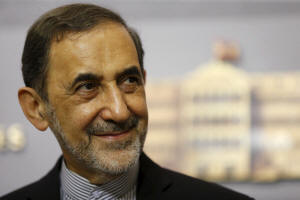|
Under the 2015 deal, Iran agreed to curb its nuclear work in
return for relief from U.S. and other sanctions. The accord
includes the option of a snapback of U.N. sanctions if Iran
breaches the deal, requiring Tehran to suspend all nuclear
enrichment-related and reprocessing activities, including
research development.
"This (trigger) mechanism must be abandoned as an irrational
principle in the event of further negotiations," Ali Akbar
Velayati, a top adviser to Khamenei, said in an interview posted
on the Supreme Leader's website.
"From the beginning, the Supreme Leader was not satisfied with
the issue of the trigger mechanism and this was done against his
will," said Velayati, a former foreign minister.
Iran has rejected Western calls for wider international talks
over its nuclear and military ambitions after U.S. President
Donald Trump withdrew from the deal in 2018 and reimposed
sanctions.
World powers and Iran have weeks to revive the 2015 nuclear deal
after Tehran began to enrich uranium at higher levels and Iran's
parliament threatened to curb the access of U.N. inspectors next
month, the head of the global atomic watchdog said on Monday.
(Reporting by Dubai newsroom, Editing by William Maclean)
[© 2020 Thomson Reuters. All rights
reserved.] Copyright 2020 Reuters. All rights reserved. This material may not be published,
broadcast, rewritten or redistributed.
Thompson Reuters is solely responsible for this content.

|
|






